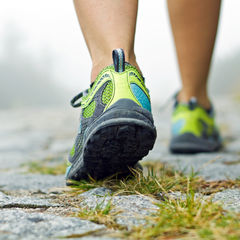-
10 Tips to Prepare for Your Weight Loss Operation
Wednesday, March 26th, 2025By Liz Goldenberg, MPH, RD, CDN, Cornell GI Metabolic & Bariatric Surgery Program, NY, NY
So you are planning to have bariatric (or metabolic) surgery. If you have been doing your research and preparing for this important day, you might be thinking that you will need to make a whole lot of changes afterwards to be successful.
This author couldn’t disagree more …
Studies show it takes approximately three months to learn a new habit or behavior, so why not start to make these changes NOW? The following is a top-10 list of what you can do now, in the time before your operation.
Thus after surgery, as your first liquids and then meals come in the hospital, and then when you are making decisions at home, you will be able to simply continue those same positive habits that will take you down the path to success.
Top 10 things you can practice to prepare for your weight loss operation:
#1: Eat Slowly & Chew Well
The biggest change for most people to learn is how to slow down their eating. Studies show a correlation between how fast someone eats and how much they weigh.
You have probably guessed it: faster eaters are more likely to be overweight. There is a good reason for this. There is a delay in the time it takes for the stomach to signal the brain that there is food in it.
Meals that last at least 20 minutes, but ideally 30 minutes, will help you feel satisfied and prevent overeating. So, take some time to learn how to slow down, enjoy, and taste (!) your food now.
Some helpful ideas:
- Sit down for meals
- Turn off the TV or computer to focus on the food
- Avoid eating while driving
- Put down your fork/ spoon / sandwich in between bites
- Use smaller plates (10 inches or less)
- Take small bites
- Chew each bite more
Guess what? Trying out these behaviors now will help to prevent vomiting in the short term, when the stomach is newly “shrunken” and swollen, and prevent weight regain in the long term.
#2: Choose Sugar-free Liquids
 High-calorie liquids like sodas, juices, and alcoholic drinks are a great way to “drink around” your smaller stomach.
High-calorie liquids like sodas, juices, and alcoholic drinks are a great way to “drink around” your smaller stomach. Liquids do not provide satiety the way that foods do.
Learn to love water, and if you don’t, try some low-sugar and sugar-free products such as diet teas and fruit drinks.
Read labels and aim for no more than 4 grams of sugar per serving. Of course, 0 grams is better!
#3: Separate Your Liquids & Foods
Eating and drinking at the same time prevents us from feeling satisfied with our meals.
Think of it like making soup out of your meal. The liquid helps the food to wash through the stomach only to make room for more food.
By trying now to drink between your meals and snacks, instead of all together, you will make it much easier to adjust to this behavior after surgery.
This may be difficult at first, so gradually decrease the amount you drink during the meal.
Waiting 15-30 minutes before eating and 45-60 minutes after eating, will make you well adapted to after-surgery life.
#4: Take Supplements Daily
If you do not already take supplements on a regular basis, you should start this now. We suggest an adult multivitamin as a good one to begin with.
Make sure that your weight loss surgery program checks your blood levels for vitamins and minerals before surgery so that you will know if you are in need of any additional supplements. For example, it is very common to be low in vitamin D even before you have surgery.
All weight loss and metabolic operations will impact the foods you are able to eat. Most surgeries also affect the body’s ability to absorb certain nutrients – for the rest of your life.
#5: Think Protein
Protein assists weight loss by increasing our feeling of satisfaction or satiety. Do each of your meals contain protein now? Or is breakfast a bagel with butter?
Why not start incorporating protein into your meals and snacks now. Another thing to think about – getting adequate protein after surgery will allow your body to emphasize fat loss instead of muscle loss.
Remember that a smaller stomach means that the first thing you choose to eat, just might be the last thing that you can fit for that meal. Why not practice eating the protein first, next the fruit or vegetable (“produce”), and lastly the starch or carbohydrate?
#6: Lose Some Weight
It may sound silly to hear you should lose weight before having weight loss surgery (“Well, if I could do that, why would I need surgery??”).
Some programs ask their patients to avoid gaining weight, others require weight loss, and still others encourage a small amount of weight loss. Losing as little as a few pounds prior to surgery may help to make your liver smaller.
It just so happens that the liver is located on top of your stomach, and thus your surgeon has to move the liver to perform your surgery. An easier and safer operation = a happier surgeon and a happier you!
#7: Begin a Walking Program
When it comes to exercise, every little bit counts.
 Whatever you are capable of doing, even if it’s only walking a few laps in your hallway, try to increase it by just a little.
Whatever you are capable of doing, even if it’s only walking a few laps in your hallway, try to increase it by just a little. This will help get your lungs and heart in the best shape possible before undergoing surgery.
A realistic goal for most is a ½ hour walk 3 to 4 days per week.
Speed does not matter but you may want to get a pedometer to begin counting your steps.
#8: Keep Food Records
Those who keep a journal, or act like (what we call) a food accountant, by writing down what they eat and drink, as they eat or drink it, on average lose more weight than those who do not keep track.
Start before surgery by picking up a pocket notebook, as well as a food scale and a set of measuring cups- especially if you are not comfortable with estimating food measurements by eye.
If you do not like paper and you are a gadget guy or girl, there are some free smartphone apps that are useful, such as fitday, my food diary, lose-it, and my daily plate.
#9: Find a Shake
Most programs will require you to find a protein shake to drink after surgery so that you meet your protein goals. Why not research some products now, and even taste a few?
Doing this in advance means one less thing you will need to worry about after your operation.
#10: Attend a Support Group Meeting
The best surgery programs have support groups for patients. Studies show that those who attend meetings are more likely to be successful with their weight loss in the long term.
Ask if you are allowed to go to a meeting before your operation to check out what it is like “on the other side,” and ask questions!
(published July 3, 2013)
 Liz Goldenberg, MPH, RD, CDN, is a registered dietitian at Weill Cornell Medical College where she educates their patients about the unique nutritional requirements of weight loss surgeries. She also writes for and serves on the editorial board of Bariatric Times, a national, peer-reviewed industry publication. Liz speaks on the topic of nutrition for various audiences around the country. She is especially proud to have founded Manhattan’s first “ASMBS Walk from Obesity,” and continues to serve on the organizational committee for this important annual event which has been “walked” since 2003.
Liz Goldenberg, MPH, RD, CDN, is a registered dietitian at Weill Cornell Medical College where she educates their patients about the unique nutritional requirements of weight loss surgeries. She also writes for and serves on the editorial board of Bariatric Times, a national, peer-reviewed industry publication. Liz speaks on the topic of nutrition for various audiences around the country. She is especially proud to have founded Manhattan’s first “ASMBS Walk from Obesity,” and continues to serve on the organizational committee for this important annual event which has been “walked” since 2003.


